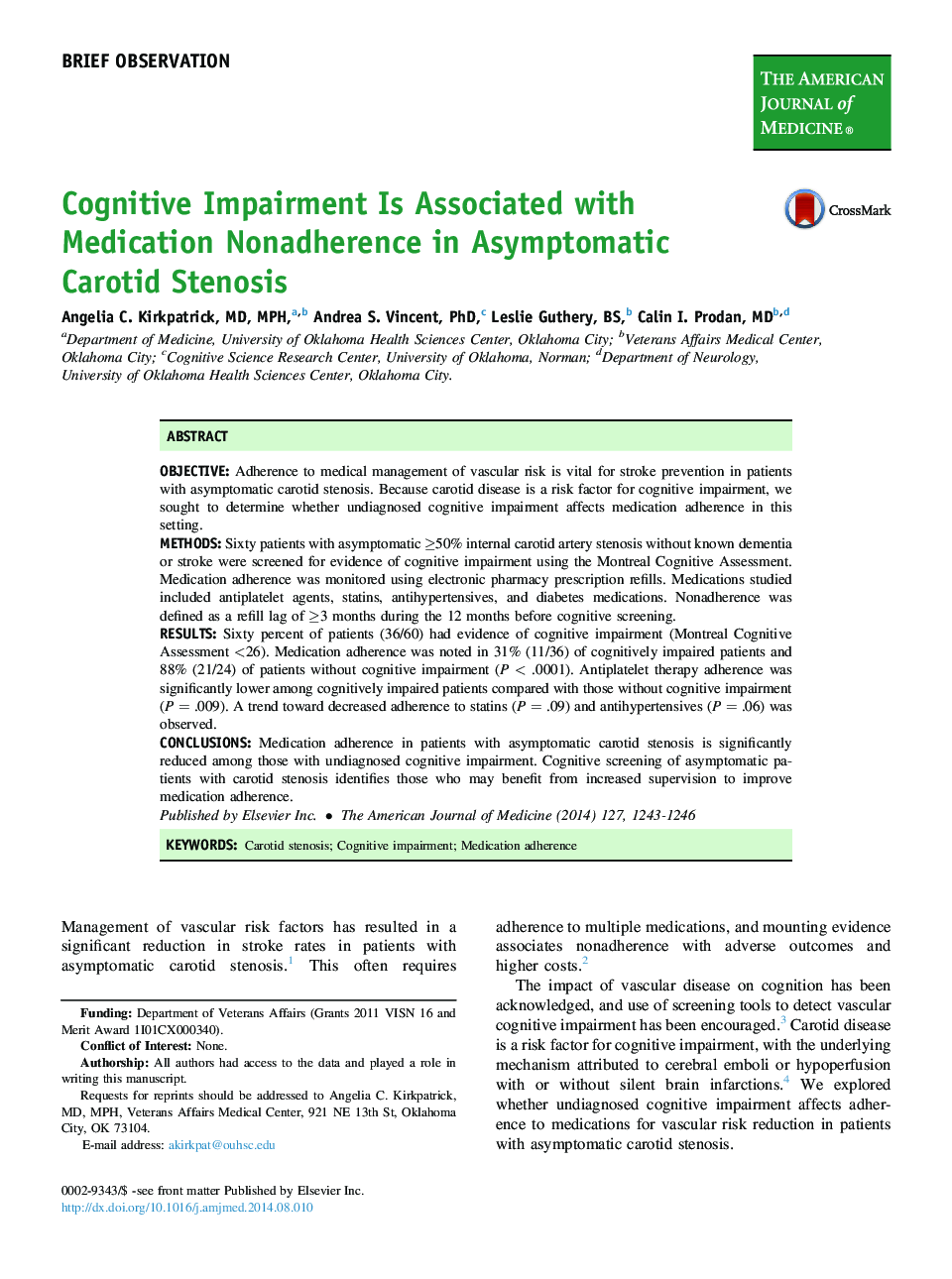| Article ID | Journal | Published Year | Pages | File Type |
|---|---|---|---|---|
| 5875952 | The American Journal of Medicine | 2014 | 4 Pages |
ObjectiveAdherence to medical management of vascular risk is vital for stroke prevention in patients with asymptomatic carotid stenosis. Because carotid disease is a risk factor for cognitive impairment, we sought to determine whether undiagnosed cognitive impairment affects medication adherence in this setting.MethodsSixty patients with asymptomatic â¥50% internal carotid artery stenosis without known dementia or stroke were screened for evidence of cognitive impairment using the Montreal Cognitive Assessment. Medication adherence was monitored using electronic pharmacy prescription refills. Medications studied included antiplatelet agents, statins, antihypertensives, and diabetes medications. Nonadherence was defined as a refill lag of â¥3 months during the 12 months before cognitive screening.ResultsSixty percent of patients (36/60) had evidence of cognitive impairment (Montreal Cognitive Assessment <26). Medication adherence was noted in 31% (11/36) of cognitively impaired patients and 88% (21/24) of patients without cognitive impairment (P < .0001). Antiplatelet therapy adherence was significantly lower among cognitively impaired patients compared with those without cognitive impairment (P = .009). A trend toward decreased adherence to statins (P = .09) and antihypertensives (P = .06) was observed.ConclusionsMedication adherence in patients with asymptomatic carotid stenosis is significantly reduced among those with undiagnosed cognitive impairment. Cognitive screening of asymptomatic patients with carotid stenosis identifies those who may benefit from increased supervision to improve medication adherence.
